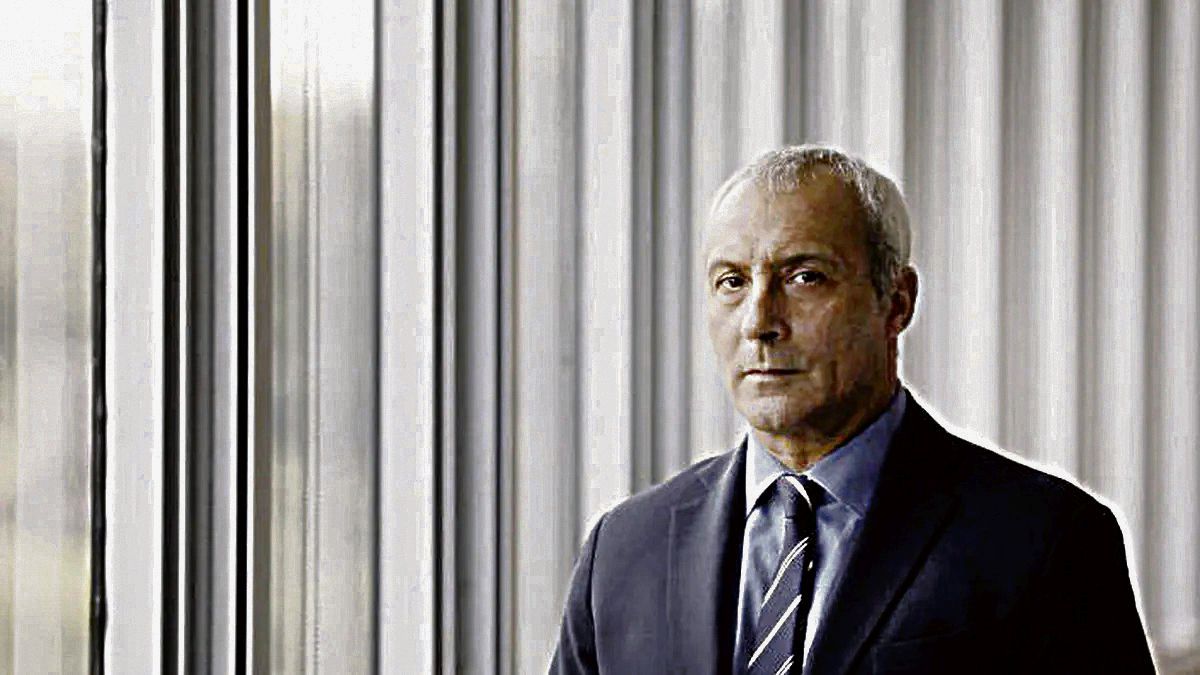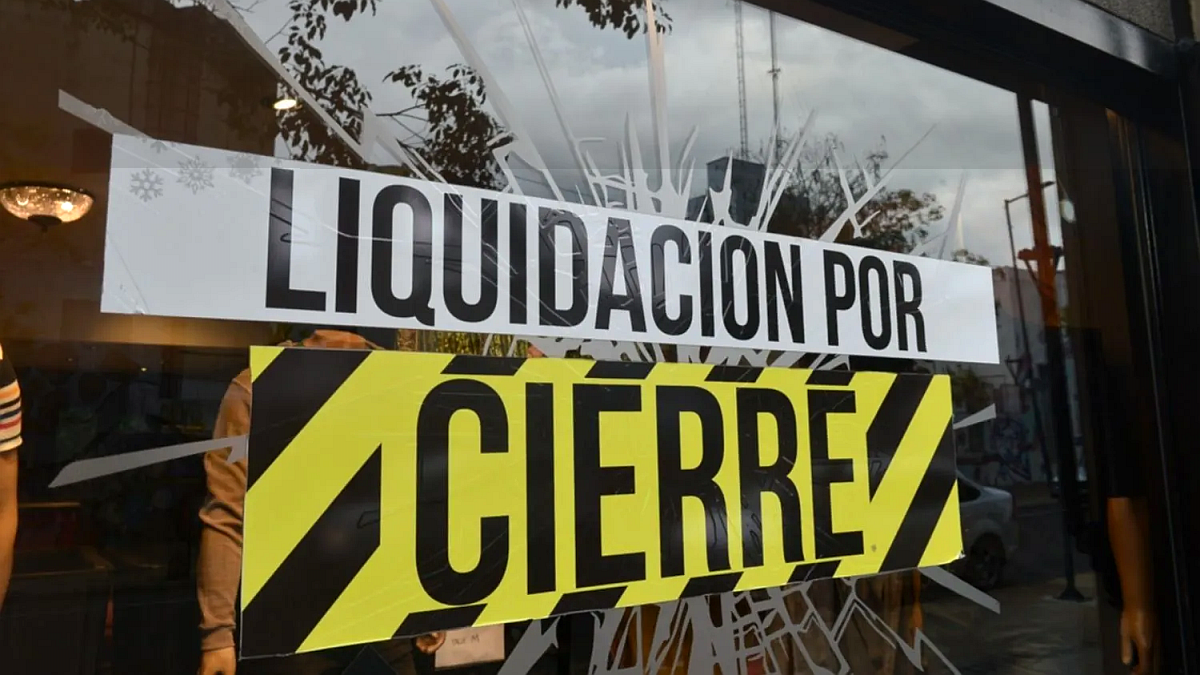Emphatic in his word, forceful in his message, agreeable and optimistic in the conceptual when asked about the economy, this is how businessman Adrián Mercado presents himself at the time of the interview. The head of the homonymous group dedicated to real estate management, online auctions and investments in “turnkey” companies drew up a detailed analysis of the real estate sector, predicted a drop in property prices but, above all, referred to the year current electoral process, the business community and the industrial sector, of which it feels part. He maintains, among other issues, that the economy will continue to expand based on the interest that, he points out, is evident in the sector, especially in machinery auctions, in stores, offices and industrial parks. Ámbito was able to talk with him at his offices in Puerto Madero in the City of Buenos Aires.
Adrian Market: It’s true. From three years to this part the business has not stopped growing. Fortunately, in general, SMEs are doing well. It can be seen that, despite the problems weighing on the macroeconomy, local production is growing and some SMEs are even exporting. This means that when these companies accumulate pesos, the first thing they think about is changing the machinery, modernizing. We have seen many companies that still have machines that are 20 or 30 years old, or that have not been able to renew them until now. However, at this time and in recent years, businessmen have been able to access the possibility of doing so.
A.M: Right now, small and medium-sized businesses can buy equipment. It’s more. Many rush to order new equipment, even though they know it may take a while for delivery. The industry is fine, we see it as good, the numbers support it.
Q.: Have the ways of holding auctions changed?
A.M: Yes of course. They no longer have a place in the traditional living room. Today the auctions are done by streaming or by another electronic platform. The latter is somewhat colder in terms of the relationship that can be established with the person who is interested in the auction. I prefer to interact with the buyer on the other side, have a chat, a comment, try to seduce someone who is willing to pay a little more for what is being auctioned. But there is something else. A few years ago, people from the interior of the country, from other provinces, could not come to the face-to-face auctions that were always held in the City of Buenos Aires or in nearby areas. In general, the person who lived in the interior was not encouraged by the distance and the fact that he told himself that he had to travel to Buenos Aires, around five hundred kilometers without knowing if he was going to be able to buy, with an uncertain result . Let’s say that they let the auctions pass and then that was left for a small group of people and they became habitual of those operations. The universe has expanded a lot. Strictly speaking, what happened is that these groups that were always at the auctions were more involved in a kind of intermediation, they bought and sold all those people who couldn’t come. Now people buy directly and avoid that other mediation.
Q.: There was always a certain aversion to the subject of coming to the City of Buenos Aires to participate in an auction…
A.M: The good thing that happened behind all this is that the people from the interior, who were always the ones who had resistance to the capital, began to have the confidence that we are people of our word, serious people, they are realizing little by little that that is spoken and agreed is fulfilled. The best effort is always made to make the transaction come to fruition. In fact, we are seeing many industrialists and provincial businessmen who are buying a lot and are growing. Santiago del Estero, Jujuy, San Juan, Catamarca, areas where we find that there is a lot of mining activity, all this drives a strong demand for equipment, which looks to us to supply and renew as well.
Q.: What economic sectors are most interested in machinery auctions?
A.M: It is always road and construction that stings in point. They are the strongest. And for us, for some reason, the market made us benchmarks in those areas. And then we continue to have strong demand from the small light and heavy metal industry sector, metalworking. Overhead cranes, heavy control machines, machining centers, everything that is naval machinery for workshops. It is understood that there are companies that cannot go out and buy a machine from scratch, it is impossible for them to import it or, for that matter, it does not make sense because, to carry out a certain six-month job, they need it, but later they do not want to keep the equipment.
P.: The context surely plays its place. We are in an electoral year, with some complications at the macroeconomic level, the negotiation with the IMF ahead. What analysis do you do?
A.M: We have not felt any loss of interest in electoral matters. We permanently measure it with the number of calls, with the number of queries that we have registered on our website, the queries. That’s key. Every day I have a report on the number of calls we have, the operations we carry out, that’s like a day-to-day monitor. What we see is that a lot of interest persists. For example, companies like Techint, Cartelone or Barrick that go out to sell their used equipment to renew it are seen as an opportunity for small and medium-sized companies to acquire machinery. In these cases, the consultations triple. We feel that the industrialist is encouraged to be able to buy, that he looks a little further in time, he anticipates. If the equipment is within range of him, he does it. He is not speculating on the purchase.
Q.: But in an electoral situation, isn’t there a risk of slowing down the decisions?
A.M: I understand that, perhaps, as we go through the days that separate us from the electoral dates, our activity may suffer some stagnation, a temporary stoppage in purchases. But I believe that the industrialist is convinced that Argentina has a great opportunity to move forward.
Q.: Does the same thing happen with the real estate sector?
A.M: The real estate sector does not stop growing, especially in the industrial part. In the last four years, everything that involves industrial parks and warehouses has grown in both sales and rent. Many want to expand their barn, but may not be able to because they are in a limited area. So they rent other industrial buildings or warehouses while they do something important, such as the purchase of a lot in an industrial park. This is crucial. Many people buy land in industrial parks in pesos at a value of the official dollar and pay it in 24 or even 36 installments. So the pesos that today are left over from the Argentine market, instead of buying dollars, they buy land in a park and in three years they move to their own lot. The small and medium industry is betting one hundred percent on the country.
Q.: What happens with the offices or departments in the City?
A.M: Office rentals are doing very well. We have always believed that, over time, sooner or later the employer does not end up finding it very encouraging that workers are at home without going to a workplace. We see that it works better in a hybrid format, because teamwork is needed, communion is needed on a day-to-day basis. This also generates positive inertia for the treatment of ideas. There are many people who are realizing and taking advantage of the fact that offices are at relatively low values, not even close to historical ceilings. So they are using strategic places like Puerto Madero, Palermo, the entire northern zone, Avenida Libertador on the side of the capital and province. People are slowly returning to the workplace. Regarding the properties in the City, each case must be analyzed. I think that in the Caballito neighborhood, something worth $3,500 per square meter is expensive. It will continue to lower the property. The works continue to exist, it is true. But for the developer it is more of a financial business, since when he buys the land he does not put money in cash because he pays with apartments and everything like that. Inputs are generally paid with departments.
Q.: Let’s go back to the beginning. I want to ask you about the economic question. A broader and more historical look…
A.M: I am already several years old. I have seen quite a few things in economic matters. I have seen many governments pass. However, mine was always linked to SMEs. In fact, I have an industrial look because he was an industrial worker, I suffered the problems that they suffer but I can also understand their reality. I am one of the people who clearly defend SMEs. Every time an SME has closed in these long years it was a terrible loss, not only for the country, but also for people, families. In highly deprived neighborhoods, the blow is worse, because there you can get a job if you live near an SME and when that SME closes, twenty families are left on the street. I have a political view linked to that. That you have to take care of the industry. That the government on duty has to take care of work because it dignifies. That is to protect the majority of Argentines. If there is work, if there is industry, then we will be able to get ahead. I don’t sympathize with governments that have brought unfriendly industry policy. I understand the problems. I understand that there is an IMF with which to negotiate. But anyone who wants to be president has to take into account a sector like the industrial sector.
Source: Ambito




